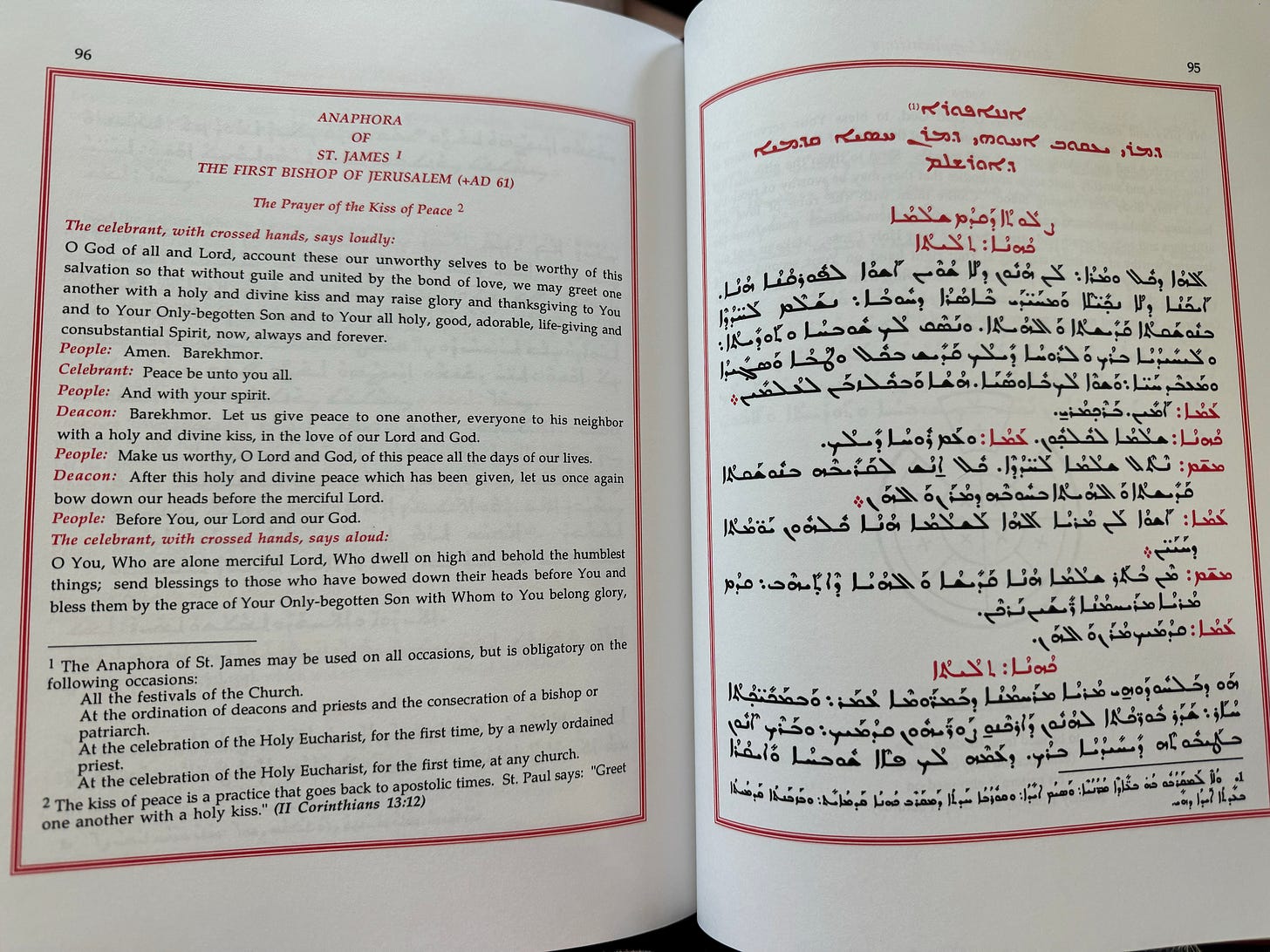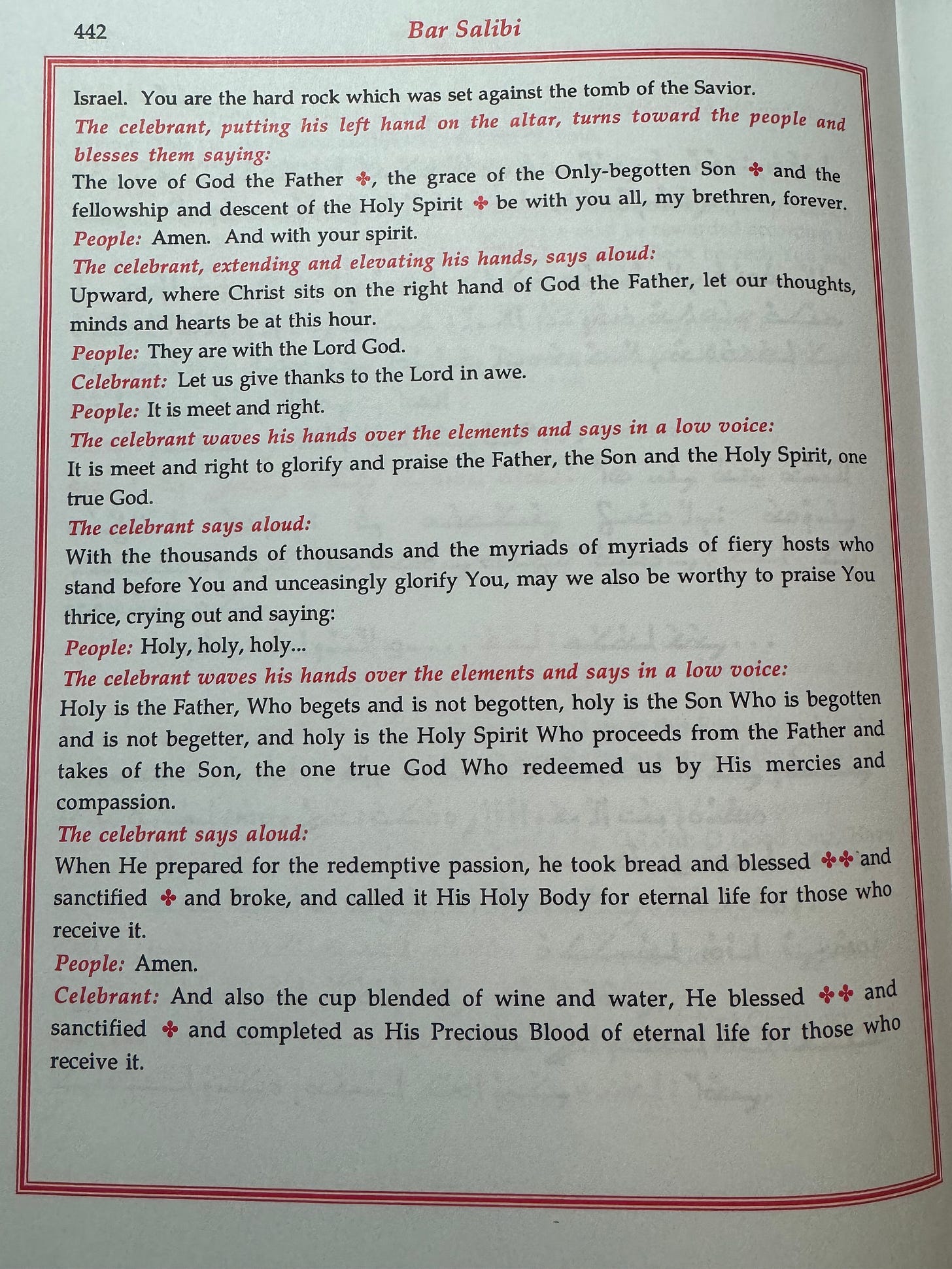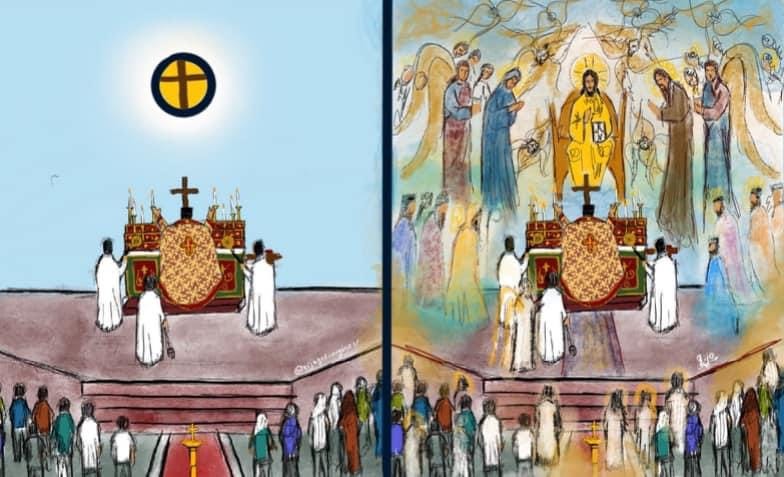“Monotony.” “Vain repetition.”
Those were the words a dear friend used to describe the Orthodox liturgy.
He served as a Southern Baptist pastor for many decades and is well-versed in the Bible. In his words: “I have studied Scripture and church history for 50 years. I hold to the 5 “solas,” and that's enough for me.”
(For those not familiar with the five Solas of the Protestant Reformation:
Sola Scriptura (Scripture Alone)
Only the Holy Scripture is the foundation and sole authority in matters of faith. No church tradition can be above Scripture.
Sola Gratia (Grace Alone)
Man can be saved only by the grace of God. The grace of God effectively brings us to faith.
Sola Fide (Faith Alone)
Only by faith, not by works, can we be justified in Christ.
Solus Christus (Christ Alone)
Only in Christ can we be saved. There is no other way to God and eternal life than through Christ.
Soli Deo Gloria (To God Alone Be the Glory)
God created all that exists for His own glory. It is God's sovereign decision to save man in Christ. The goal of life is to honor God.)
He and I have discussed my move from 45 years as an evangelical to being received into the Syriac Orthodox Church of Antioch over the past two years. Admittedly, he is the one who has been mainly subjected to my exuberance over the joy of my journey to a more ascetic Orthodox path and the joy and fulfillment I have found in it.
We have known each other for several years, but we only saw each other once on a trip my husband and I took through his hometown. We did some sightseeing and had dinner with him and his wife.
Yet, I was taken aback by the declaration that, to him, celebrating the same liturgy every Sunday would be monotonous. Admittedly, my journey into Orthodoxy is a little over two years old, and maybe I haven’t reached the stage yet where I find anything in the liturgy even remotely boring.
In fact, most Sundays, I attend two liturgies. My husband is Greek Orthodox, so we worship at St. George Orthodox Church here in Prescott. I then drive over 1:30 hours south to Phoenix to attend my Syriac Orthodox church, St. Mary’s Syriac Orthodox Church in Glendale.
The first liturgy is in English, and the second is in Syriac and Arabic, with some occasional English. I love them both. I use an English liturgy translation for the latter.
The beauty of the Eastern Orthodox Divine Liturgy and its Syriac equivalent Holy Qurobo are beyond measure.
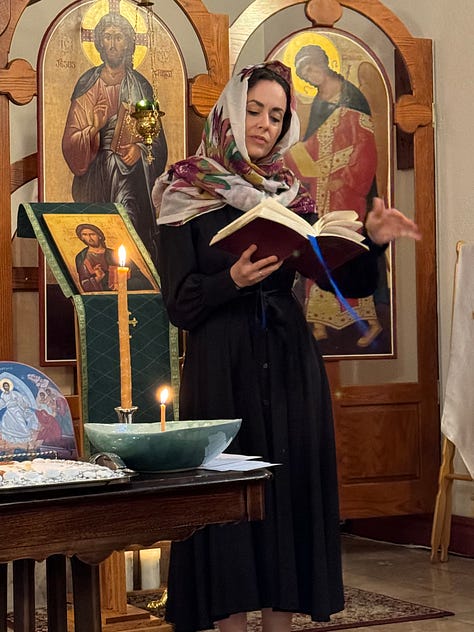
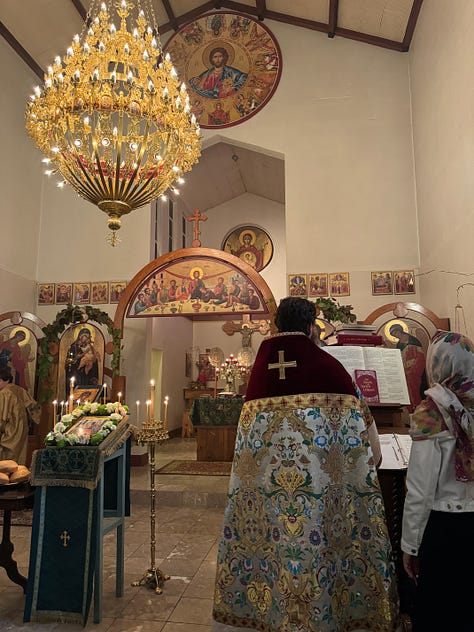
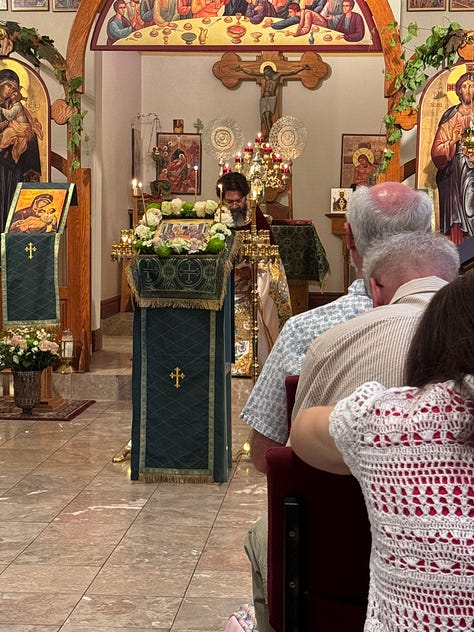
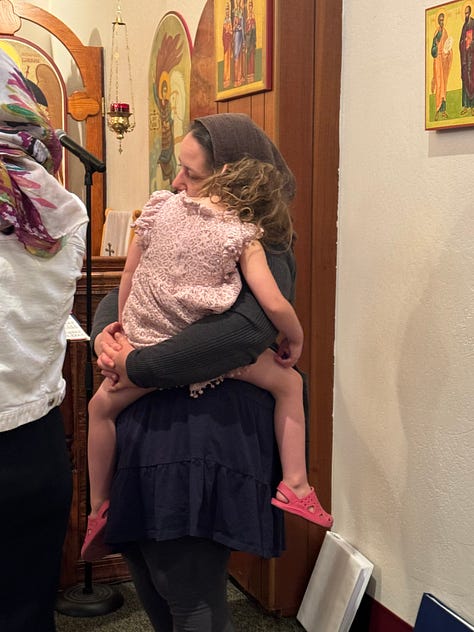
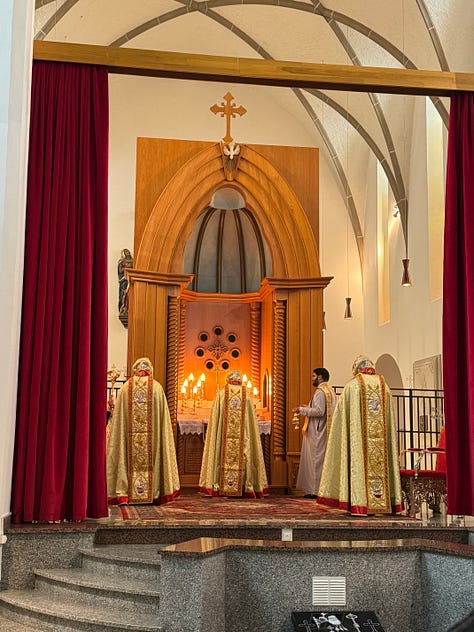
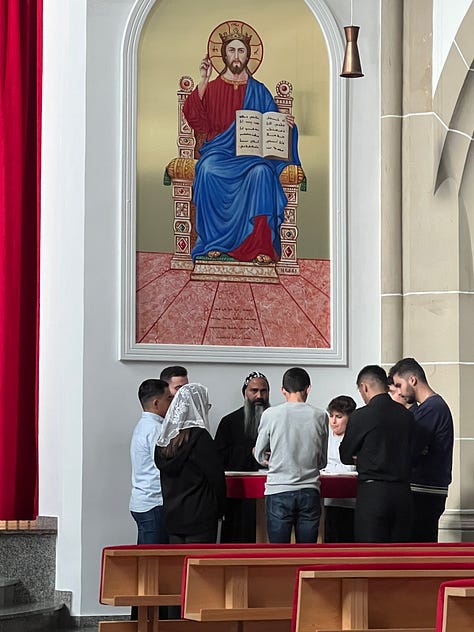
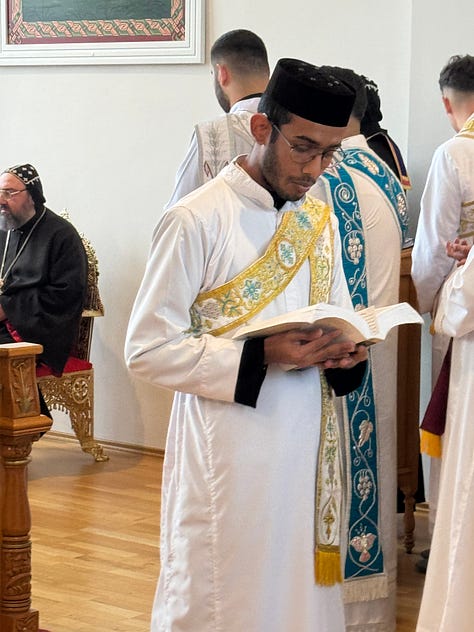
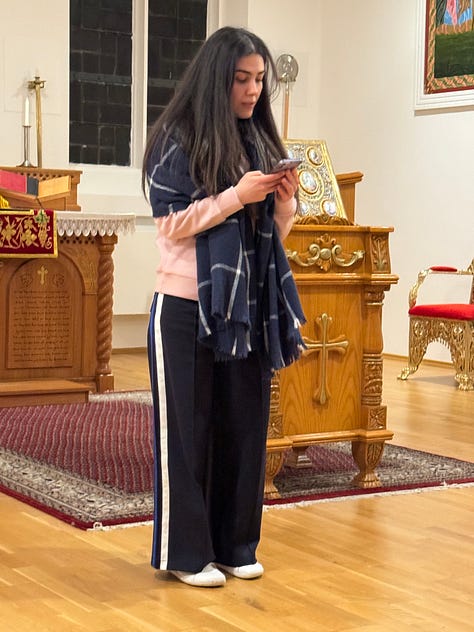
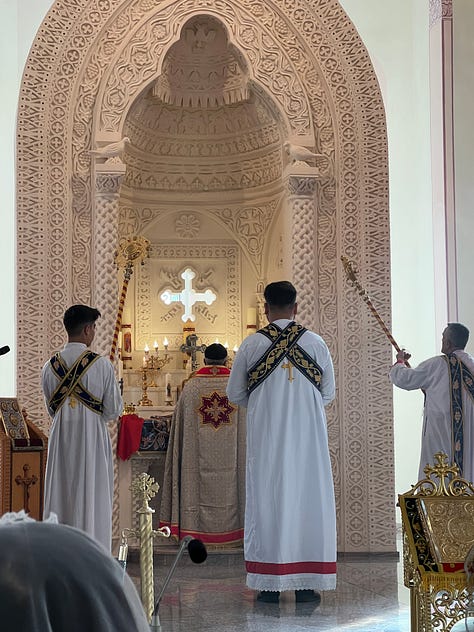
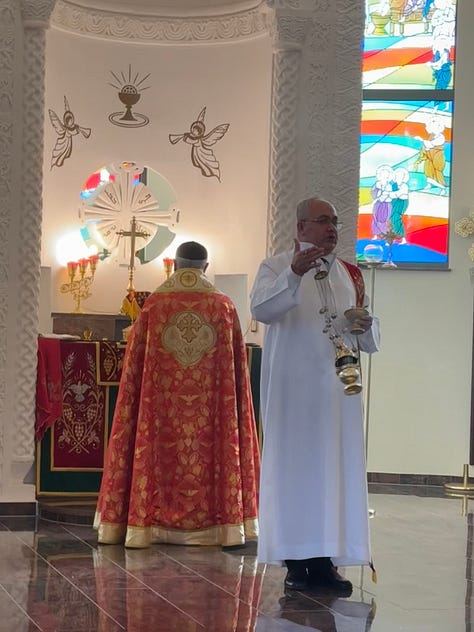
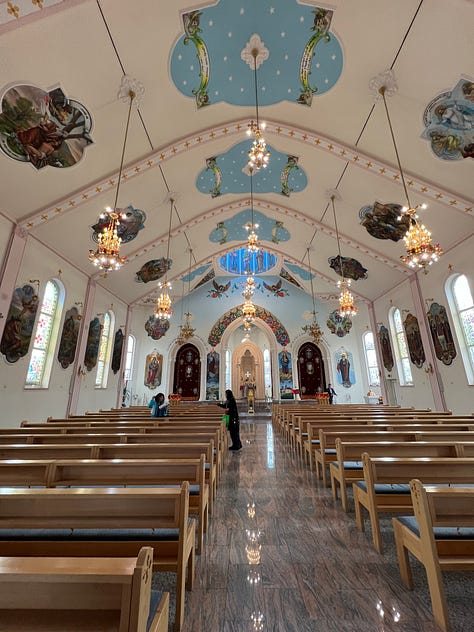
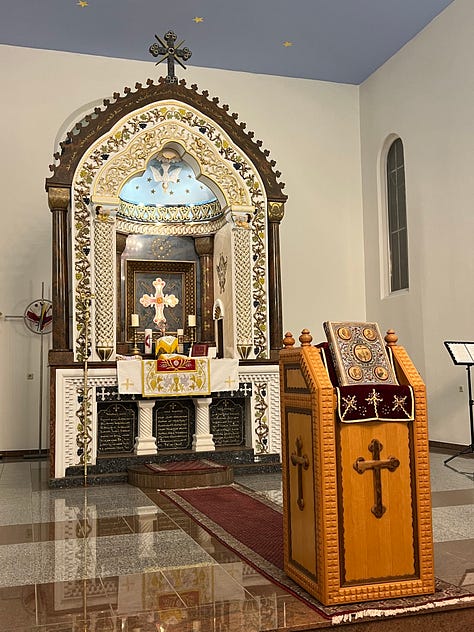
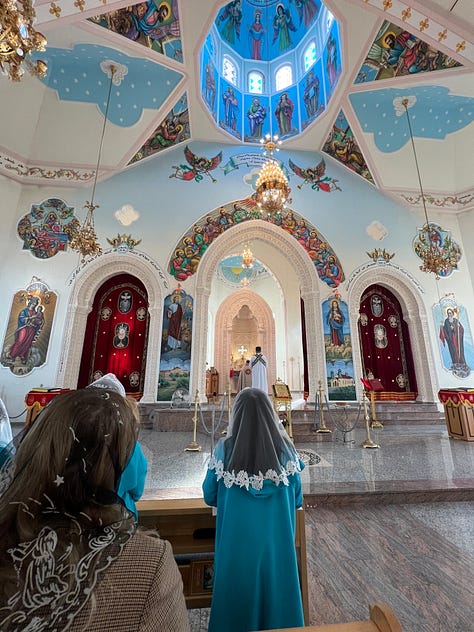
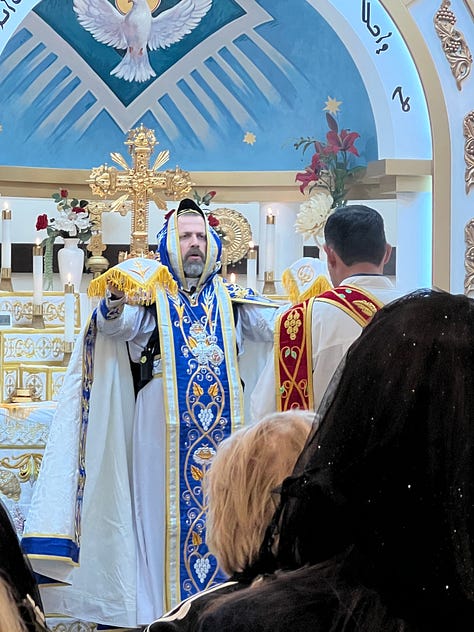
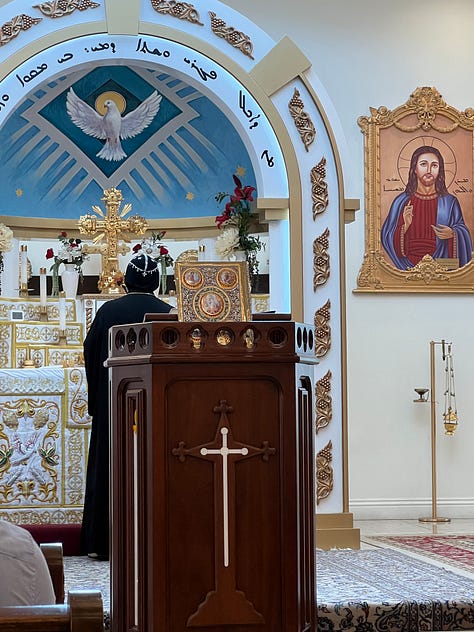
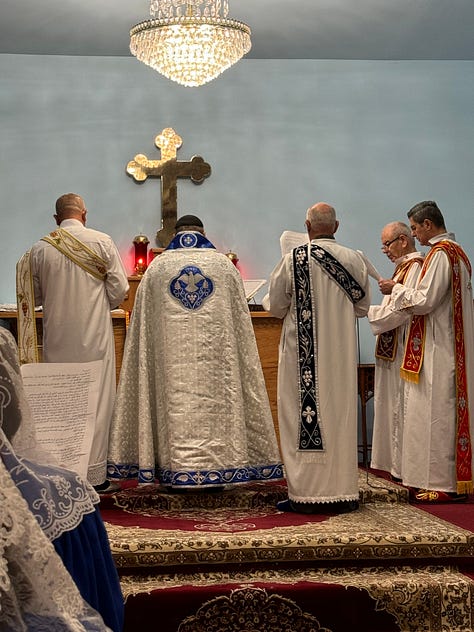
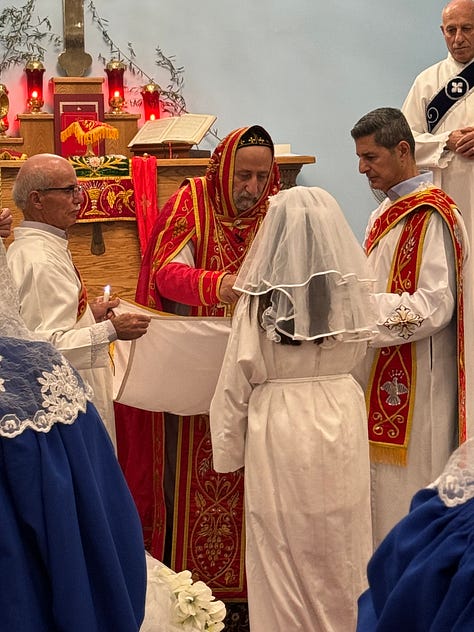
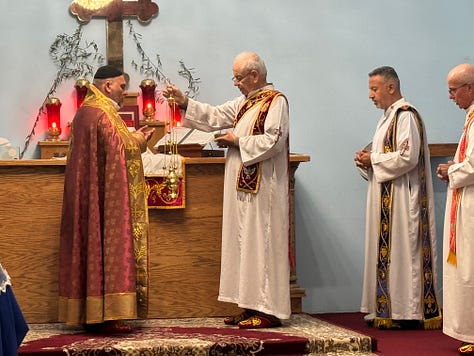
The reading of Scripture, the biblical references in the hymns for the day, and the number of prayers in each liturgy are unparalleled in the Protestant world.
While it is true that in the Orthodox world, the same liturgy is celebrated most Sundays (there are some exceptions), these liturgies are anything but monotonous, which translates to boring in my brain. The emotional impact that I used to sense when I was singing praise songs in my former worship experience seems shallow when compared to the deep stirring of the soul that is invoked by reflecting on the words of the liturgy.
More than eighty anaphoras have been collected in the Syriac Orthodox Church alone over the centuries, deemed perhaps the richest in Christian history. The Anaphora, or Eucharistic Prayer, is a portion of the liturgy in which, through a prayer of thanksgiving, the elements of bread and wine are consecrated and become the body and blood of Jesus Christ. The riches of the apostolic faith of Orthodox Christians through the centuries have been captured within them.
The oldest anaphora celebrated in the Syriac Orthodox Church is attributed to St. James, the first bishop of Jerusalem and brother of our Lord, who died in AD 61!
I am privileged to own this book containing several Syriac Orthodox anaphoras. It is a blessing to read anaphoras ranging from the apostolic age, attributed to some of the Apostles themselves, to the 12th century. It truly becomes clear that what the Lord taught the Apostles was faithfully carried forward as the way we are to worship Him. Nothing is dull or monotonous about it. Instead, it is awe-inspiring every time the priest celebrates the liturgy. The angels and the saints are palpably worshipping the Lord with us!
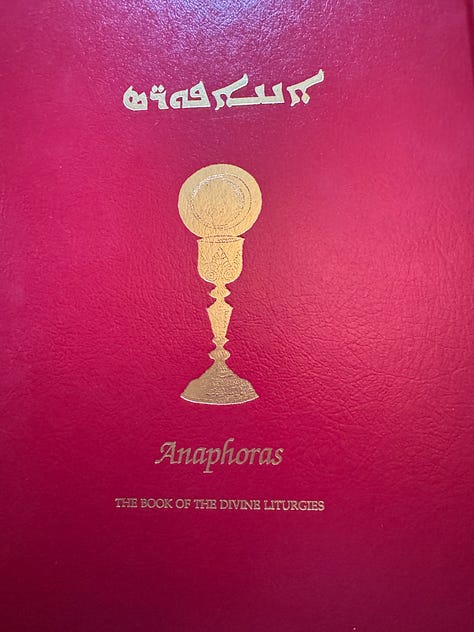
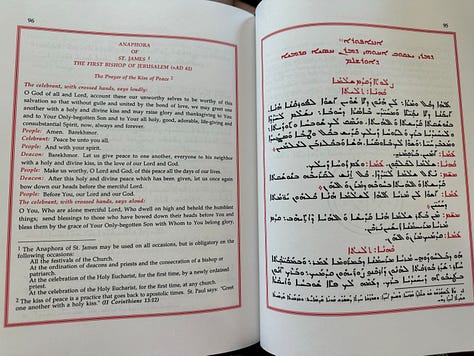

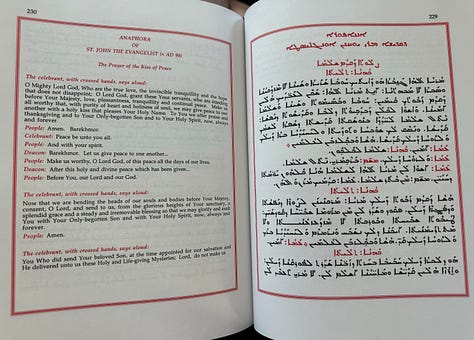
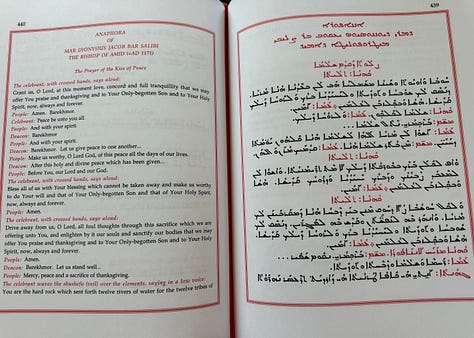
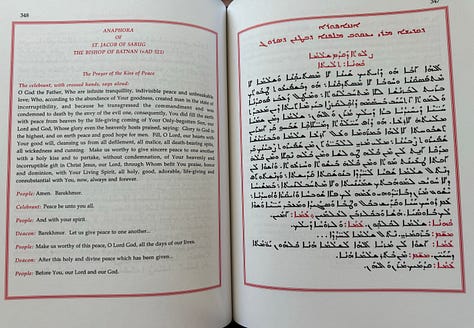
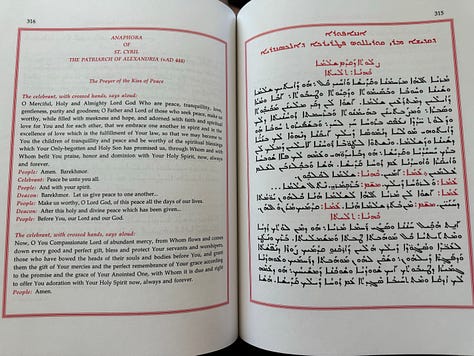
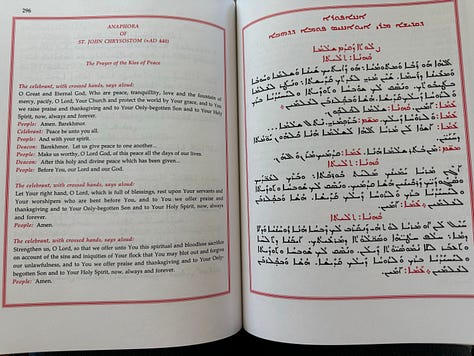
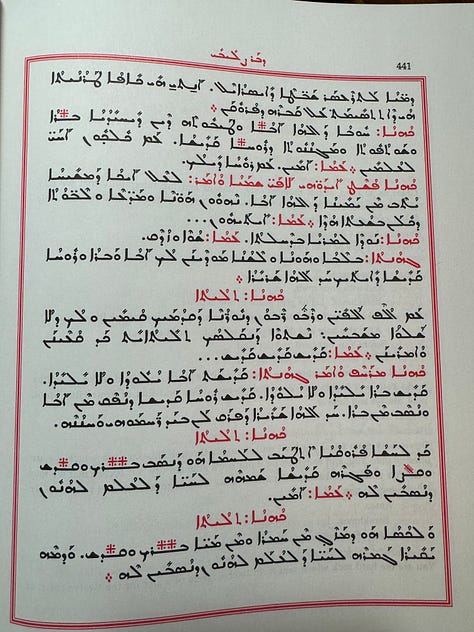
Here is just one page from the Anaphora by Mor Dionysius Bar Salibi. He was a Syriac Orthodox writer and bishop, who served as metropolitan of Amid, in Upper Mesopotamia, from 1166 to 1171. Just one of the many names in the uninterrupted apostolic succession of the Syriac Orthodox Church from the days of the Apostles.
There is nothing but worship of the triune God visible in any of these liturgies. He is to be worshipped as the first duty of every Christian. Nothing about our worship is monotonous; nothing smacks of vain repetition. Rather, just like in Old Testament worship in the Tabernacle and later at the Temple in Jerusalem, there is order in the worship, as Jesus Himself taught His disciples in the forty days He spent on earth after His glorious and victorious resurrection.
When we celebrate the liturgy, we celebrate Christ with the saints of the past who have gone before us. Here is an image that I found on Facebook that describes this very well. When we worship, angels and saints worship with us. It doesn’t get much more exciting than this! I stand in awe every single time I stand before my God. I have shed more tears of both repentance and joy since becoming Orthodox than in the 45 years as a believer before.
Throughout the week, my husband and I can be overheard singing the liturgical hymns we hear every week. We are moved to tears by the depth of the words we are singing. The hymns cut to the depths of our souls.
I will close with a quote from an April 1, 1952 letter by C.S. Lewis, a well-loved Anglican author:
The advantage of a fixed form of service is that we know what is coming. Ex tempore public prayer has this difficulty: we don’t know whether we can mentally join in it until we’ve heard it — it might be phoney or heretical. We are therefore called upon to carry on a critical and a devotional activity at the same moment: two things hardly compatible. In a fixed form we ought to have “gone through the motions” before in our private prayers: the rigid form really sets our devotions free. I also find the more rigid it is, the easier it is to keep one’s thoughts from straying. Also it prevents getting too completely eaten up by whatever happens to be the preoccupation of the moment (i.e. War, an election, or what not). The permanent shape of Christianity shows through. I don’t see how the ex tempore method can help becoming provincial and I think it has a great tendency to direct attention to the minister rather than to God.




